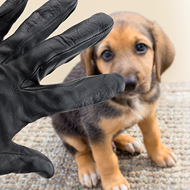MPs to debate pet theft petitions

The petitions calls to make pet theft a specific criminal offence.
Two petitions relating to pet theft are set to be debated in parliament on Monday (19 October).
Petitions Committee member Tom Hunt MP (Ipswich) will lead the debate, with the Department for Environment, Food and Rural Affairs (Defra) sending a Minister to respond.
The first petition, entitled 'Pet Theft Reform: Amend animal welfare law to make pet theft a specific offence' received more than 117,000 signatures. It states: “We propose to amend the Animal Welfare Act 2006 to make pet theft a specific offence, distinct from that of inanimate objects; and in sentencing, the courts must consider the fear, alarm or distress to the pet and owners and not monetary value.”
In response to the petition, the Government said: “Current sentencing guidelines takes account of the emotional distress that the theft of personal items such as a much-loved pet can have on victims, and recommend higher penalties for such offences.”
The second petition, 'Make pet theft crime a specific offence with custodial sentences', received more than 143,000 signatures. It states: “Pet Theft Reform 2020: Revise the sentencing guidelines in the Theft Act 1968 to reclassify pet theft as a specific crime. Ensure that monetary value is irrelevant for the categorisation of dog and cat theft crime for sentencing purposes. Recognise pet theft as a category 2 offence or above.”
In response to the petition, the Government said: “The sentencing guidelines now take account of the emotional distress and harm that theft of personal items such as a pet can have on the victim and recommends higher penalties for such offences.”
The debate starts at 16.30 and will last 90 minutes, during which MPs will be able to question government ministers directly on these issues. To watch the debate online, visit https://parliamentlive.tv/Commons



 The Animal and Plant Health Agency (APHA) has updated its online reporting service for dead wild birds.
The Animal and Plant Health Agency (APHA) has updated its online reporting service for dead wild birds.